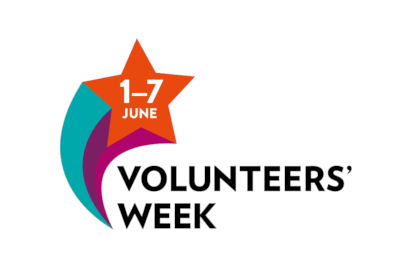National Volunteers' Week- Showcasing Voluntary Roles
 Volunteers are essential to the running of all aquatic sports, from club training sessions to competitions to officials’ training. Quite simply, our sports would not run without a large number of dedicated volunteers covering a wide range of roles.
Volunteers are essential to the running of all aquatic sports, from club training sessions to competitions to officials’ training. Quite simply, our sports would not run without a large number of dedicated volunteers covering a wide range of roles.
Volunteering is very rewarding and a great way to build on existing personal skills. It also provides opportunities to learn and develop new skills and to meet new people.
Annually we celebrate our volunteers in June but for now we showcase some of our amazing volunteers and the roles they undertake, and share the skills and enjoyment it brings. Each article is written by someone undertaking the role for their club.
If you would like to volunteer some of your time and give back to your club, please contact your committee to see where you can help.
To be honest I kind of fell into the fundraising role. I had no previous experience. I’d volunteered at the club in other ways (entrance desk at meets, raffles, occasional poolside helper, whipping). Then one day I overheard a conversation between the Chair and Head Coach about how they wished they had someone to take charge of fundraising and before I could stop them, the words “I’ll do some fundraising for you” came out of my mouth. I don’t know who was more shocked – me or the Chair!
I’ve been fundraising since 2017 and in 2019 joined the Committee because I felt a better knowledge of the workings of the club and its needs would help to inform my fundraising work. The advantage of fundraising is that you can do it in your own time, as much as you wish, although there are deadlines to meet when submitting applications and the timeframes are sometimes very short. It helps if you have good (creative) writing skills for submitting bids and the ability to analyse eligibility criteria and decide whether your club’s needs fit the bill. Other useful qualities are an eye for detail, persistence and resilience because for every ten bids you submit maybe one will be successful, and although some sources of funding are available every year, the criteria often change and few are geared to sport.
It is very rewarding to know I am supporting the club financially and providing additional income, so it can deliver the best possible experience to its members. Over the last year the funding has helped the club through the pandemic, and in the last 4 years has purchased new equipment such as backstroke ledges, external starter strobe and pace clocks, as well as money for coaches’ and officials’ courses. I enjoy working with my colleagues on the committee, being involved in the club and get a real sense of achievement. If a poolside role isn’t for you, do consider fundraising for your club, it’s really worthwhile.
Some funding pots that clubs may find useful can be found on our fundraising page
Having been a club welfare officer for several years, I was happy to step into the role of County Welfare Officer. In this role I support all the clubs in the County across all the disciplines offering advice and support where needed.
The main task of the welfare officer is providing the first point of contact for swimmers, parents, coaches, and other volunteers within the clubs who have a child safeguarding or welfare concern and ensure that policies and procedures are kept up to date and effectively implemented. The wavepower document is the Welfare Officers best friend and most of the information needed is in that document! There is also lots of support available from Swim England East Region or Nationally direct with Swim England.
As a former swimmer, and the parent of a swimmer volunteering is very important to me and something I hope to continue doing for many years to come, I’ve learnt so much over the years as well as making lifelong friends. I thoroughly enjoy volunteering in various roles and am always happy when giving something back to the sport of swimming which has been a part of my life since the age of 7. By volunteering we are ensuring that future generations of swimmers can compete and attend events locally, regionally and nationally.
As a parent watching my children swim, I remember being asked the question, “Would you like to help the Club by becoming an official”? My initial thoughts were, I don’t know anything about swimming rules, or what to do!
Many years later I realise that the role is extremely beneficial to the Club; providing competitive opportunities for the swimmers in a consistent and fair environment, also facilitating an income source.
The pathway supporting the development of officials from Timekeeper through to Referee by British Swimming is accessible to all.
Throughout my training I have been supported by my local club, county, regional and national mentors, who guided and encouraged me to develop throughout the levels. My journey has continued long after my children have stopped swimming; I now consider officiating to be my hobby, which has allowed me to travel around the Country and more recently internationally. This won’t be the case for everyone; but any support is valuable whatever your availability or personal goals may be.
Every step of the way has been thoroughly enjoyable, giving me a sense of achievement through teamworking and more importantly enabling me to make many new friends over the years.
So when asked the question, please consider this as an worthwhile opportunity not a chore, as I truly believe that you may enjoy supporting the swimming community.
More information about becoming an Official can be found on the officials page
I decided to become a pool-side helper to gain more experience and a different perspective on my sport.
It has helped me gain more awareness on how to self-analyse and strengthen my ability to look from someone else’s perspective. I have also been able to understand how to find solution to problems and how to clearly and concisely get my point across in the best way for that swimmer.
I enjoy seeing things click in people’s heads, especially if that was helped by my explanation or demonstration. It’s a great feeling to see people happy with their work at the end of the session and makes you feel proud of yourself.
More information on the role of a Poolside Helper can be found on the Swim England website
I began volunteering as a committee member as I had been helping at our swimming gala events as a timekeeper and as a former member of Thetford Dolphins swimming club, I thought I could make a worthwhile contribution at committee meetings, training sessions, and continue to help at galas as an official or as a committee member while my two children took part in club training sessions or competing at galas.
I really enjoy volunteering at the club. It has helped me to develop new skills which in turn has led to me securing a new career within the civil service and has given me much more confidence as a person. I enjoy working with my fellow committee members at our monthly meetings to plan how we will continue to move the club forwards.
I have been a committee member now for 7 years and I still really enjoy volunteering at the club.
Being a Team Manager, for me, is highly rewarding. Not only does it give me huge satisfaction to see the swimmers that I am working with thrive and reach their full potential, it has incredible awards for me as an individual.
It allows me to put to good use all the skills I’ve learnt and for me to also learn new skills and to do something different to my everyday endeavours. I really get a lot out of being able to make a difference to the swimmers and their families ensuring that they are taken care of at swim meets/swim camps and are fully updated with logistics of events and competitions. For me, being part of the “team behind the team” that makes it all possible is very enriching. Being part of the swimmers, parents and coaches support team means that I can play an important part in the smooth running of events so that all participants enjoy their swimming experiences.
More information on the role of the Team Manager can be found on the Swim England website.
Further information on some training for this role can be found on our webpage.
Below are some commonly asked questions about volunteering. You can also find out more information on the Swim England Volunteering Hub.
What volunteer roles are available?
Clubs are always looking for volunteers, such as:
Committee positions: chair, secretary, treasurer, welfare officer, website/social media administrator, competition secretary, kit sales.
Poolside roles: coaches, teachers, team managers, poolside helpers (some coaching and teaching roles are paid but most are voluntary).
Competitions: event helpers (e.g. balcony staff to take spectator fees), announcers, registration desk admin, runners, officials.
Do I need previous experience?
No previous experience is required, clubs just want individuals who are willing to help and be trained up for a role. However, many people have experience that easily carries over into an aquatic volunteering role, e.g. a teaching assistant who trains as a team manager, or an accountant who takes on a club treasurer role.
How much time will I need to give up?
That all depends on the role, some may be just at competitions (e.g. a team manager), some might be weekly (e.g. a coach or teacher). The wide variety of roles means there is always something you can do to help with the time you have available.
How do I get involved in volunteering?
Contact your club who will be able to provide you with more information about the volunteering vacancies they have. They will also be able to provide you with more information about training opportunities, such as coaching courses, officials’ courses and team manager workshops.



